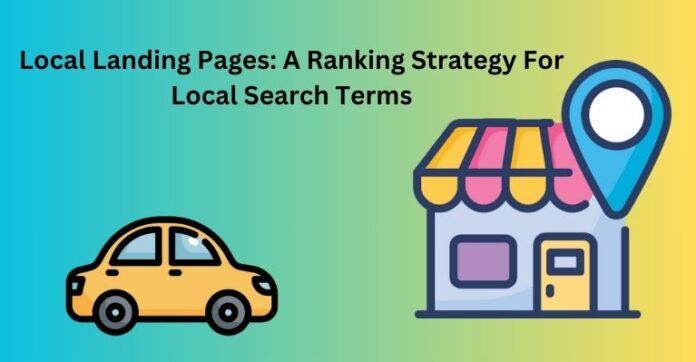Creating separate local landing pages for various locations can be a valuable strategy for ranking local search terms. Here’s what you need to know:
The Purpose Of a Location Page:
Location pages serve four primary purposes for retailers:
- Location Detail Page: This represents the physical address of a business.
- Location Service/Department Page: Represents a specific service or department category at the physical location.
- City Page: Represents the city where various physical locations are located.
- State Page: Represents the state where various physical locations are located.
For service area businesses, similar pages are created to target different areas they serve. These pages help in local SEO and improve the relevance of your Google Business Profile (GBP) for specific areas.
Why Do Location Pages Matter For SEO?
Location pages are crucial for two types of search queries:
Brand Queries: When users search for a specific brand or business, Google typically wants to show a location page. Not having a dedicated page can lead to less relevant results.
Non-Brand Local Queries: These are high-value queries where users seek a specific service or product in a location. Having dedicated location pages can help multi-location businesses rank for these queries.
Location pages also attract external links, accumulate backlinks from local media sites and directories, and play a role in spreading link authority throughout the site.
Read the best ways to find a digital marketing company near me.
Impact on Local Pack Rankings:
Linking your Google Business Profile to a location page for the area you want to rank in is a critical factor for Local Packs. The location page’s content and relevance directly affect your rankings in local search results.
Essential Elements of a Well-Optimized Location Page:
Critical elements of a well-optimized location page include:
- Name, Address, Phone Number (NAP): Ensure the information matches your GBP.
- Structured Data: Use schema markup to mark up NAP elements.
- Targeted Meta Data: Title tags and H1 headers should include the business name and location.
- Engagement Factors: Incorporate calls-to-action, appointment schedulers, and other engagement elements.
Advanced Location Page SEO:
For more advanced optimization:
- Optimized Copy: Create unique and targeted copy for each location.
- Link to Nearby Locations: Link to nearby locations to improve visibility and relevance.
- Use Topically Relevant Images and Videos: Enhance location pages with relevant media.
- Link to Product/Service Category Pages: Link location pages to relevant category pages for better ranking.
- Add Local Reviews: Feature customer reviews from the target area.
- Team Introduction: Showcase your local team to build trust and connection.
- Additional Information: Include philanthropy, local sponsorships, hiring info, pricing, and trust signals.
Read more related on on page SEO checklist.
Use Google Merchant Center Data:
For businesses running product listing ads (PLAs), leverage data from Google Merchant Center to increase conversions on location pages.
What Not to Do With Location Pages?
Avoid the following pitfalls:
- Unnecessary Location + Service Pages: Be cautious about creating additional location + service pages that may cannibalize organic traffic.
- Location Pages With No Location: Avoid creating location pages for areas where you have no physical presence.
- Beware Thin Content-Location Pages: Thin content may lead to manual actions for some service area businesses, so ensure your content provides value.
- Only Create Pages With Clear Local Intent: Redirect or consolidate pages targeting queries with low local intent.
In short, location pages are a powerful tool for improving local SEO and connecting with customers. By optimizing these pages and avoiding common pitfalls, businesses can enhance their online presence and attract local customers effectively.

